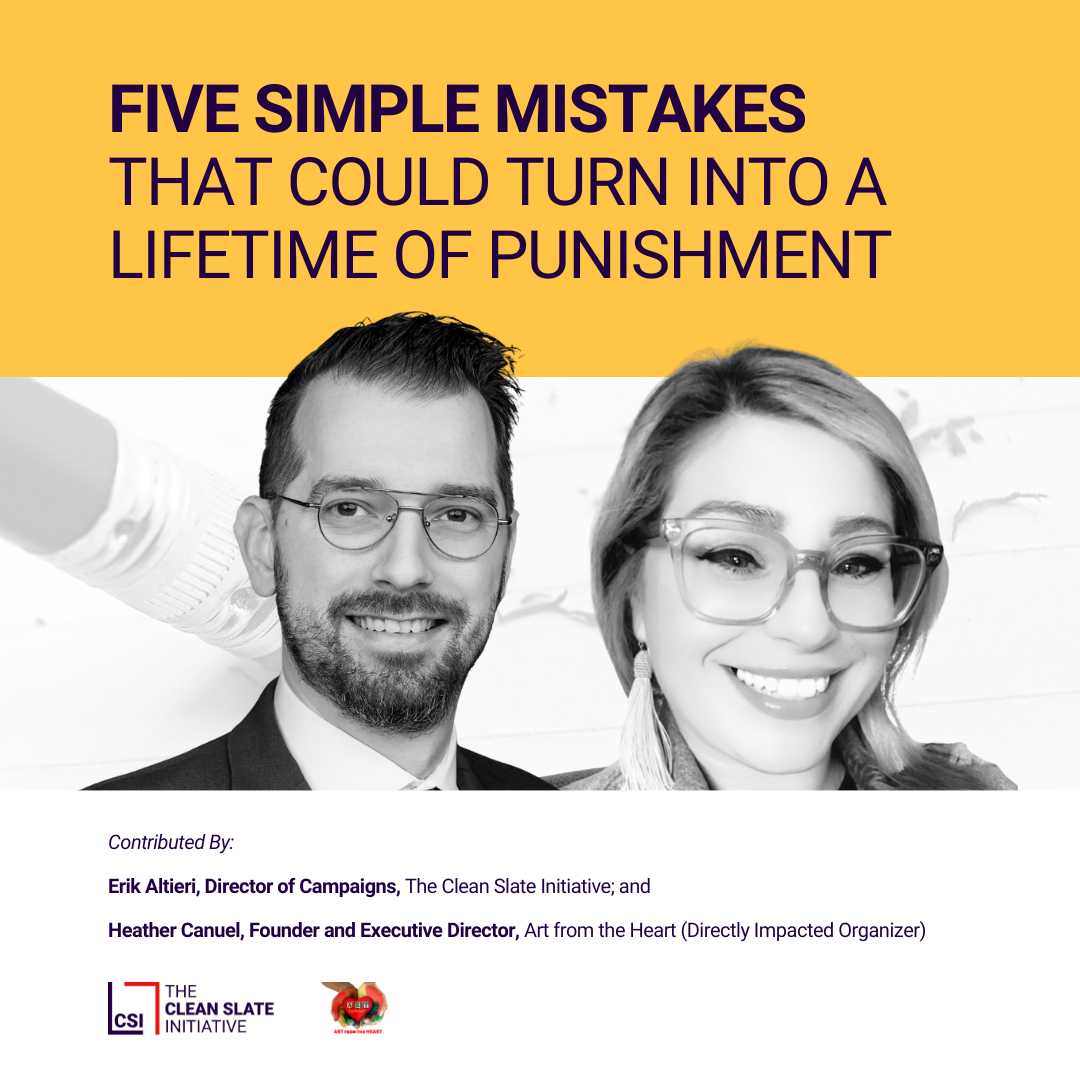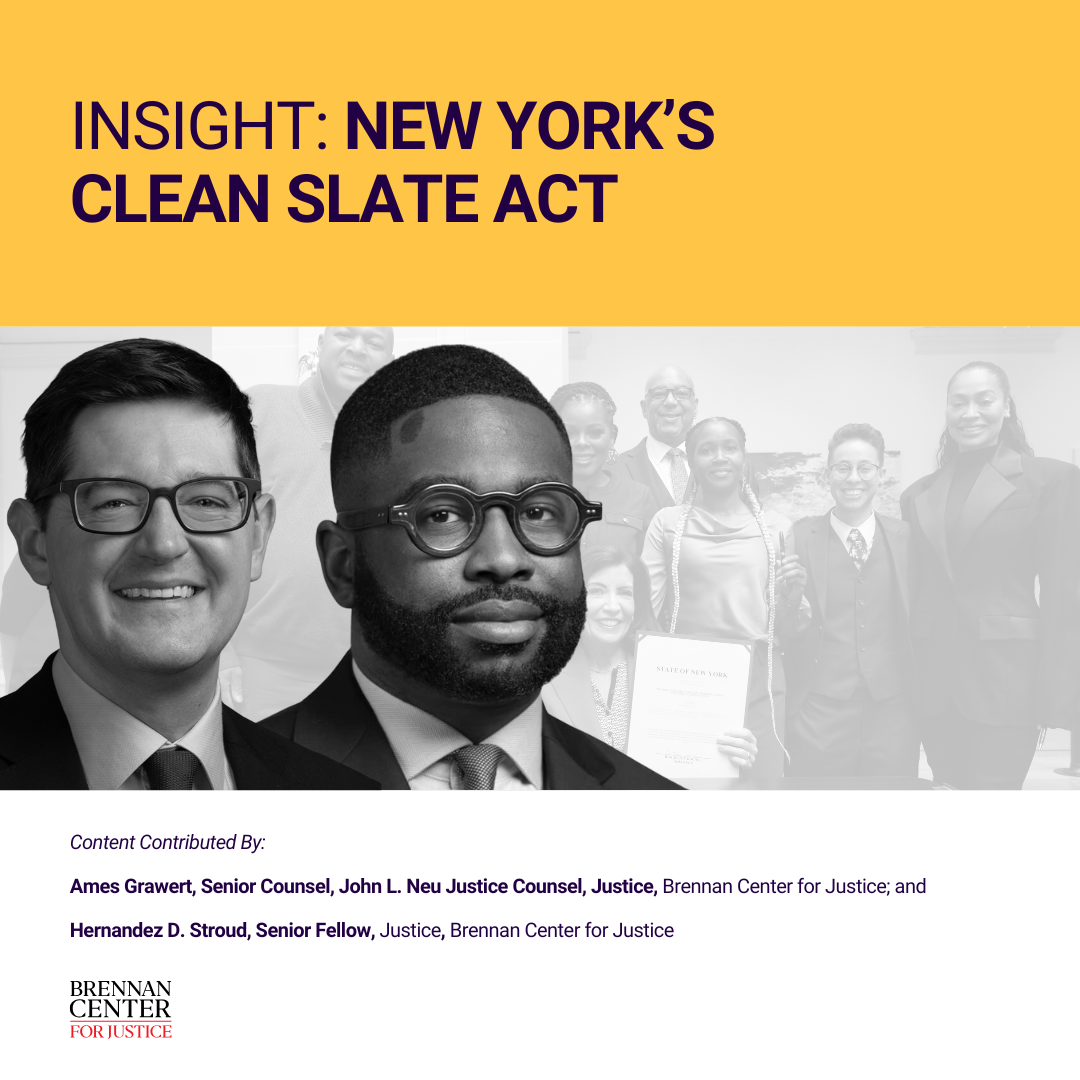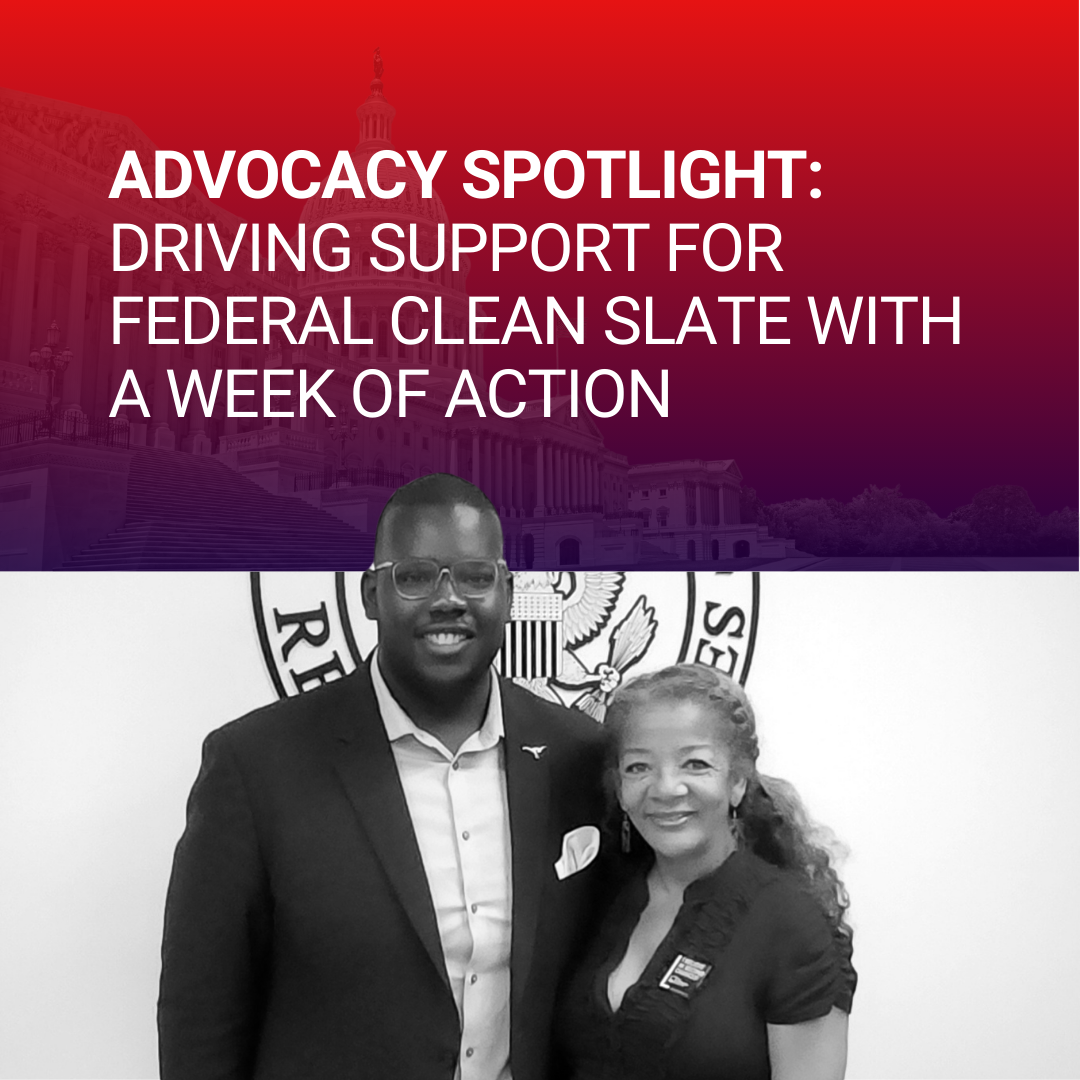Reflecting on Clean Slate New York: Impact, Implementation, and What's Next

November 16 marked the one-year anniversary of Governor Hochul signing the Clean Slate Act —legislation that will help millions of people support their families, boost New York’s economy, and help create safer and stronger communities. New York’s Clean Slate Law is among the nation’s most expansive and inclusive legislation to seal old conviction records.
This anniversary marked the legislation’s official enactment. Upon enactment, the time clock to implementation begins. The courts and various agencies will have up to three years to seal every eligible record, which must be completed by the law’s full implementation in November 2027.
Clean Slate will expand the workforce, address New York’s labor shortage, and boost New York’s economy. According to a recent analysis, Clean Slate will generate an estimated annual earnings boost to New York State of $12.6 billion. Excluding individuals with conviction records from the workforce nationally costs the economy as much as $87 billion annually in lost GDP—a devastating loss with a real human toll on households, individuals, workers, businesses, and families.
Because of the systemic racism in New York’s criminal legal system, these civil consequences resulting from old conviction records disproportionately impact Black and brown New Yorkers and deepen already-existing racial inequalities in civic life. As recent data show, 80% of individuals in New York City with conviction records are Black or Latinx, which mirrors statewide trends.
By addressing systemic barriers to jobs and housing posed by old conviction records, the Clean Slate Act will also improve public safety. A Harvard Law Review study found that within two years of clearing their records under Michigan law, people were 11% more likely to have a job, were earning 25% more, and were less likely than members of the general public to be convicted of a crime.

“The signing of the Clean Slate Act is transformative for me and millions of New Yorkers who share my struggle,” said Melinda Agnew, member of Center for Community Alternatives (CCA), at the signing of the bill at the Brooklyn Museum. “In October of 1999, I was sentenced to three years’ probation. I completed my sentence, and since then, I have become a mom and a grandma, returned to school, and obtained both my bachelor’s degree and my master’s. Yet 25 years later, despite all that I have done to give back to my community, I am still turned away from jobs, denied promotions and rejected from housing programs because of my two-decade-old conviction. While our fight to end perpetual punishment for all people is ongoing, we celebrate Governor Hochul signing this critical legislation into law.”
How We Won
For 3 years, the campaign for Clean Slate NY was tirelessly led by thousands of New Yorkers with conviction histories, their loved ones, advocates and policy professionals. The coalition included hundreds of organizations across the state, and was organized by the steering committee with the Center for Community Alternatives, Community Service Society, Hudson/Catskill Housing Coalition, the Bronx Defenders, Legal Action Center and the Legal Aid Society.

The Clean Slate Act passed with unprecedented support and a rare coalition. Resolutions in support of the Clean Slate Act passed in fifteen cities and counties across the state. In addition, the Clean Slate Act was endorsed by three Fortune 500 companies - Microsoft, Verizon, and JP Morgan Chase - who employ tens of thousands of New Yorkers, the Business Council of New York State which represents 3,500 member companies, local chambers of commerce, and professional and trade associations, and National Grid, ConEdison, and Partnership for New York City. The bill also had the support of unions representing over two million workers.
We also must lift up the visionary and committed work of the beloved Marvin E Mayfield, our late Director of Organizing at Center for Community Alternatives. Marvin was a freedom fighter who led with his heart, and he galvanized people across New York State to win a Clean Slate for people with conviction records. He did this with a deep and unwavering belief that the world can and will change – and that it is our collective power and the leadership of impacted people and families who will make that change real. He passed away unexpectedly just a few short months before Clean Slate passed.
The Work Ahead
As the law goes into effect on November 16, 2024, agencies will have up to three years to complete record sealing in 2027. We are currently focused on coordinating a robust, statewide effort to share information with people who will benefit from the law, businesses, unions, re-entry organizations and workforce development groups.
While Clean Slate marks a major milestone, there’s still work to do. At the final hour, under pressure from the Governor, the Assembly and Senate amended the legislation to exclude people with most Class A felony convictions, barring thousands of New Yorkers who are already home in the community, have served their sentences, and are simply trying to access basic life essentials from doing so. We opposed these exclusions, and are committed to the ongoing struggle to end perpetual punishment for all people.
Garrett Smith, Lead Organizer for the Clean Slate NY coalition at Center for Community Alternatives says, “While more work remains to be done to end perpetual punishment for all people, we know that the Clean Slate Act will help New Yorkers support their families, create stronger and safer communities, and boost our economy.”
Stay Up To Date on Clean Slate New York
Visit Clean Slate New York’s website to see the lates updates, find events, and more.
.avif)


.png)



